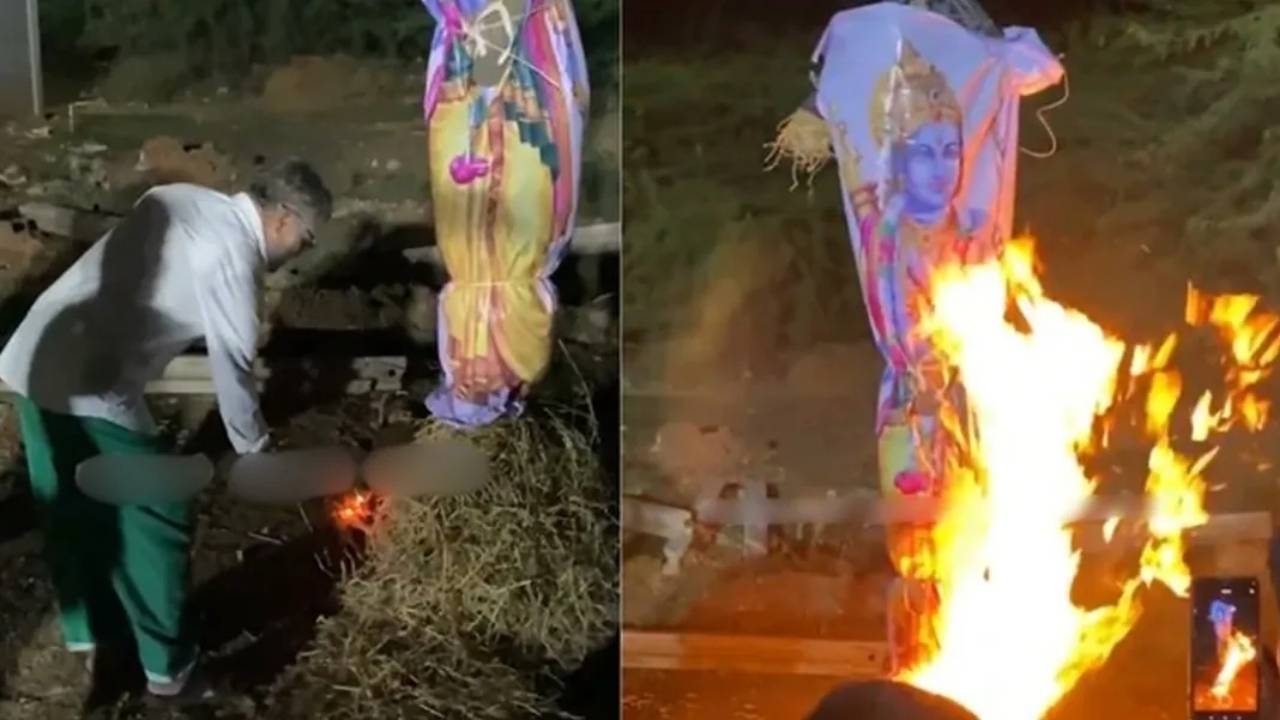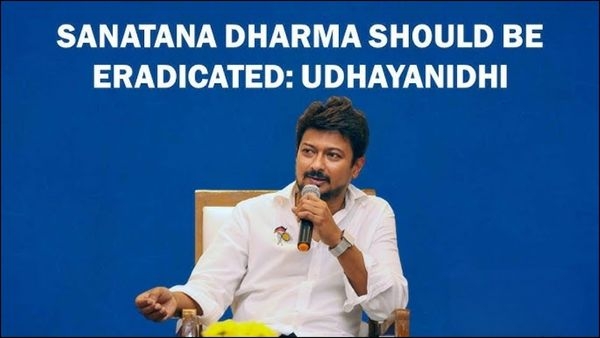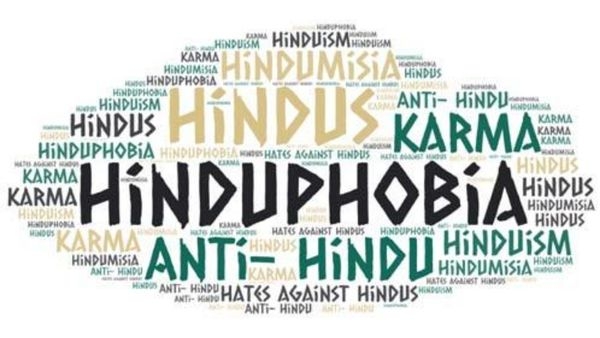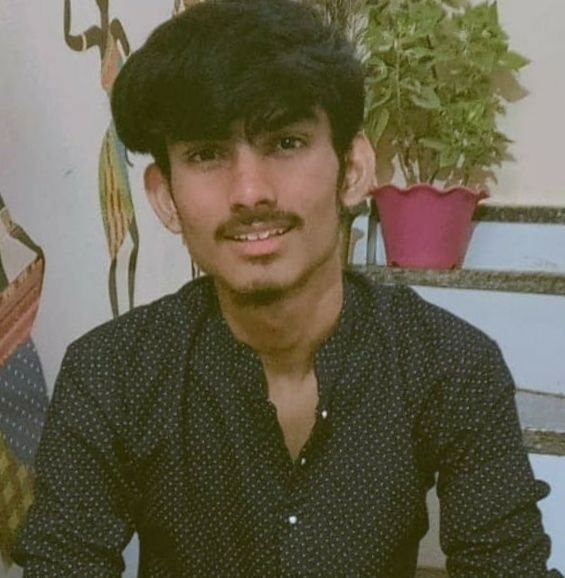Extremists Burn Effigy of Lord Rama, Hail Ravana: Rising Tide of Extremism Against Sanatan Dharma
06 Oct 2025 19:50:01

On the occasion of Vijayadashami, also known as Dussehra, while the entire nation celebrated the festival symbolising the triumph of dharma over adharma and justice over injustice, a disturbing incident unfolded in Tamil Nadu. Across Bharat, effigies of Ravana were burnt to mark the victory of good over evil, and chants of victory for Lord Ram echoed everywhere. Yet, shockingly, in some parts of the country, posters and effigies of Lord Ram, revered as the embodiment of truth and righteousness, were set on fire.
One such shocking act took place in Tamil Nadu’s Tiruchirappalli (Trichy), where a group named Anthem Tamilar Sangam burned an effigy of Lord Ram, calling it a “Ravana Leela.”
A video of the incident, uploaded on Facebook by a handle called Fifth Tamil Sangam, went viral within hours, sparking nationwide outrage. In the video, a group of men can be seen burning an effigy of Lord Ram adorned with a garland of slippers. Towards the end of the video, an image of a ten-headed Ravana holding a Veena appears on the screen. Following widespread backlash on social media, the police acted swiftly. Members of several Hindu organisations, including Bajrang Dal and Vishwa Hindu Parishad (VHP), held protests outside the Superintendent of Police’s office in Trichy.
According to a statement issued by the Tamil Nadu police, a case has been registered under Sections 192, 196(1)(a), 197, 299, 302 and 353(2) of the Bharatiya Nyaya Sanhita (BNS). Four individuals have been arrested in connection with the incident. TP Shankar, one of the accused, was arrested on 2 October, while the others - TP Rajalingam, Napoleon, and Vasanthkumar - were detained the following day. The police have launched a detailed investigation into the case.
Extremism Against Sanatan Dharma
In recent years, Bharat has witnessed a surge in ideological hostility towards Hindutva. Certain groups, driven by a Ravana-like mindset, continue to target Hindu deities, traditions, and festivals. Even senior political figures such as Tamil Nadu’s Deputy Chief Minister, Udhayanidhi Stalin, have contributed to this growing intolerance by comparing Sanatan Dharma to diseases and calling for its eradication - remarks for which he faced no punishment and was, in fact, promoted.

When influential figures normalise anti-Hindu rhetoric, they embolden others to act under the guise of “freedom of expression.” Bharat’s Constitution prohibits any speech that incites hatred or disrupts communal harmony, yet such principles appear selectively applied. What would be labelled “blasphemy” against other religions is often dismissed as “free speech” when directed at Hindutva.
Tamil Nadu, where nearly 88% of the population is Hindu and home to countless sacred temples, has become a stage for repeated provocations. Similar incidents have occurred elsewhere, such as in Mirzapur, Uttar Pradesh, where a woman named Saroj Sargam was arrested for making derogatory remarks against Goddess Durga during Navratri after converting to Christianity.
Instances of disrespect towards Hindutva are not isolated - from depicting Goddess Kali smoking to circulating offensive images of Shivling, attacks on Hindu beliefs have become alarmingly common. Despite repeated provocation, Hindus have largely responded peacefully, showing remarkable restraint.
Rising Tide of Hinduphobia

Hindutva, one of the world’s oldest religions with over 1.2 billion followers, has always been a faith of tolerance and inclusivity. It has never imposed itself upon others, even after centuries of invasions. Sadly, this very tolerance is now being exploited by those who mock and malign its symbols and traditions, hiding behind the banners of democracy and artistic freedom.
Today, some openly burn effigies of Lord Ram as an act of desecration, while others distort sacred performances like Ramleela for cheap publicity. Ramleela, traditionally a sacred portrayal of Lord Ram’s life, has in some places been tainted by vulgarity, film-style dialogues, and crude humour in the name of modern entertainment. Such acts not only insult the faith of millions but also erode the cultural and moral values that Ramleela has imparted for generations.
A glaring example of this degeneration surfaced in Delhi, where actress Poonam Pandey, notorious for promoting obscenity, was initially chosen to play Mandodari, the virtuous wife of Ravana, in a Ramleela performance. Following massive public outrage, the decision was reversed. Yet, the very idea of casting a figure known for vulgarity in a sacred role reflects a deeper attempt to trivialise Hindu traditions under the banner of modernisation.
Ramleela has long served as a moral classroom for children, teaching the virtues of truth, discipline, and righteousness embodied by Maryada Purushottam Ram. Allowing obscenity and mockery to creep into such sacred performances risks corrupting young minds and diminishing the sanctity of Bharat’s civilisational heritage.
Article by

Kewali Kabir Jain
Journalism Student, Makhanlal Chaturvedi National University of Journalism and Communication